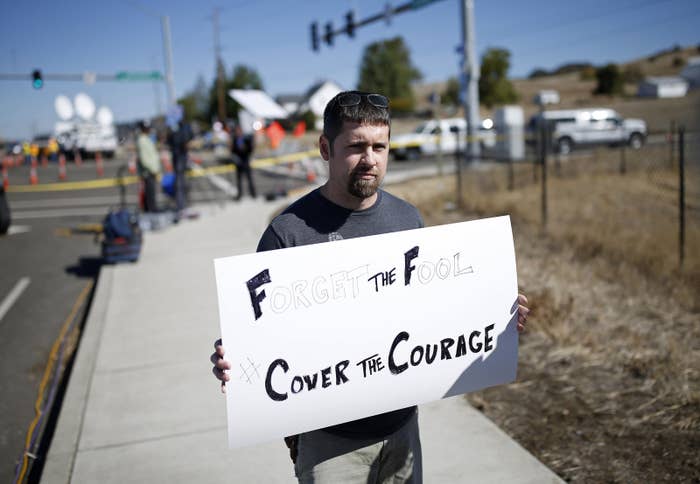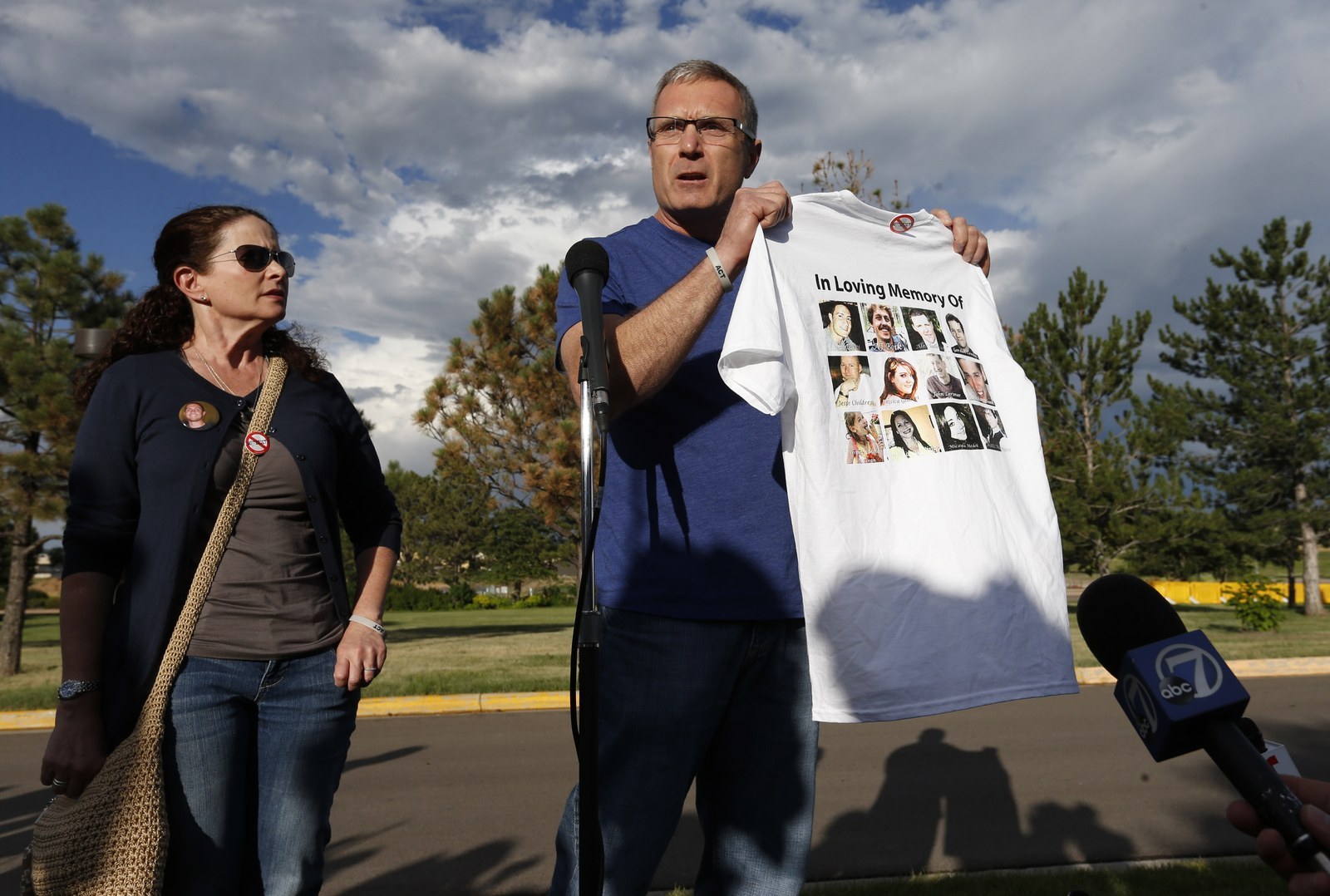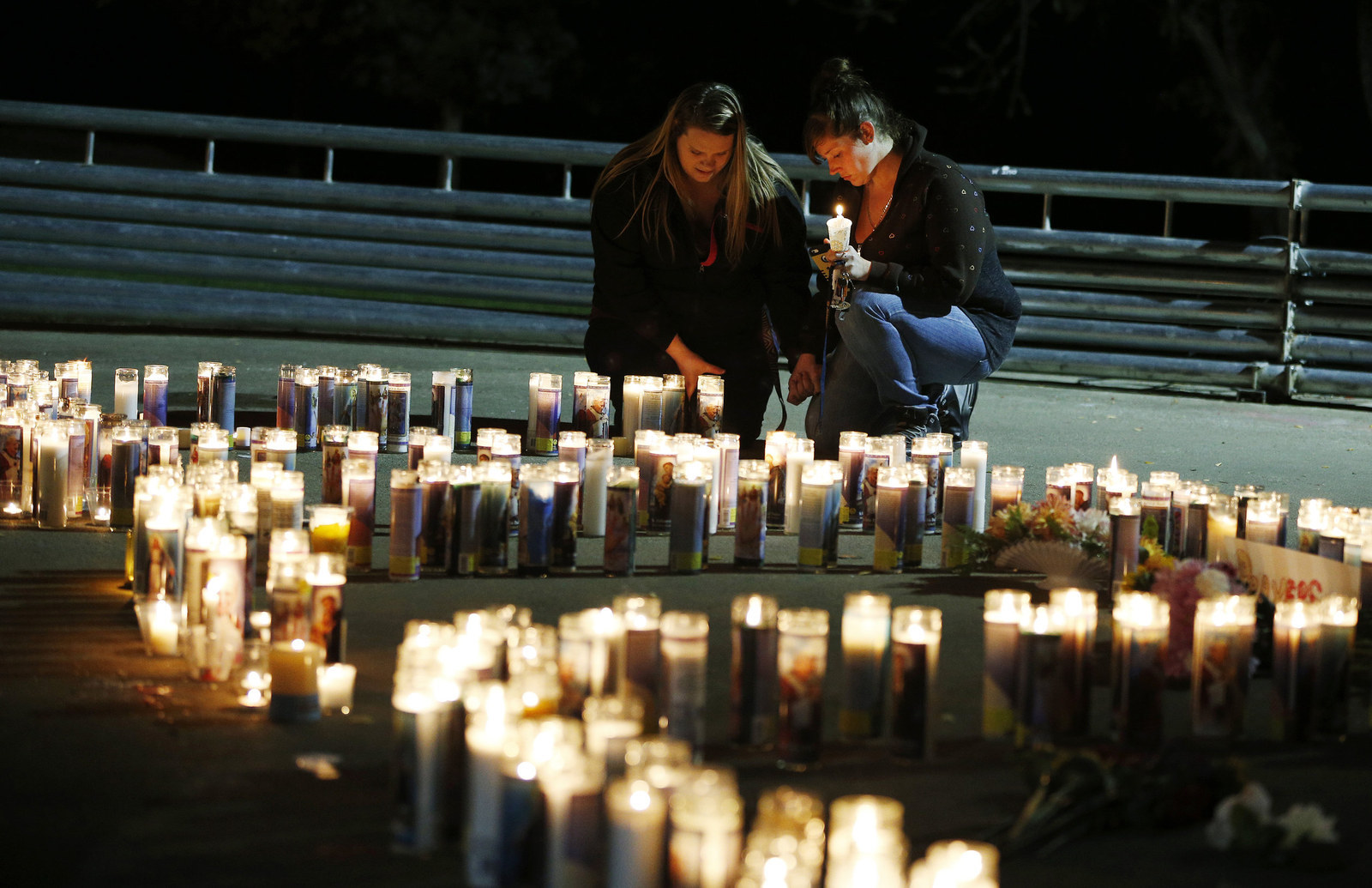
In the chaotic hours after the Umpqua Community College shooting in Oregon, names and faces were floated on the internet by amateur sleuths and pranksters claiming to have identified the gunman.
The next day, Douglas County Sheriff John Hanlin told reporters that the medical examiner, not him, would soon be releasing the shooter's official identity — 26-year-old Chris Harper-Mercer.
“I will not name the shooter,” the sheriff said. “I will not give him credit for this horrific act of cowardice.”

It was a moment that brought hope for Caren and Tom Teves, whose son Alex died shielding his girlfriend in the 2012 massacre at an Aurora, Colorado, movie theater. Since then, the Teveses have worked to keep their son’s legacy alive while advocating that his killer be forgotten.
“We’re starting to make an impact,” Tom Teves said. “What’s the downside? There’s no downside except people may live.”
The Teveses started No Notoriety, a challenge to media to be responsible when they report on mass shootings. It was inspired in the immediate aftermath of the Aurora shooting — as the Teveses looked for information about what had happened to Alex, all they could see was the face of the gunman.
“When my son’s heroism was overlooked and replaced by the coward that killed him, that just added to the grief,” Caren Teves said.
The next day, as they stood in the parking lot of the theater, Tom Teves offered a challenge to CNN’s Anderson Cooper. Go for 60 seconds without saying his name. Or 24 hours. Or forever.

The challenge was born out of an attempt for emotional survival, Caren Teves said. The couple then began researching mass shootings and the motivations behind them.
“The fact has come back unequivocally that it’s notoriety and fame,” Tom Teves said.
In the immediate aftermath of a mass shooting, a single motive is seldom clear. Experts have pointed to factors such as narcissistic personalities, desires for revenge against society, and a lack of empathy. In a number of cases — including Umpqua Community College — the shooter studied other mass shootings.
“It becomes a marketing campaign for the next shooter, and people deserve to live,” Teves said.
BuzzFeed News has published Mercer’s name and photo as part of its coverage.
Referring to the graphic videos of beheadings by ISIS, Executive Editor Shani Hilton has previously discussed the company's stance on reporting content that’s readily available on the internet.
"We don’t want to sanitize the Internet,” she said. “It’s there on the internet, our audience is on the internet, so to pretend like there’s some artificial wall between our audience and the raw content, it seems a little silly to me.”
Though Tom Teves refers to the man who shot his son as “the coward” or “it,” he said he understands that the media has a job to do. He does, however, ask the media to be responsible: Report the story as you normally would, but name the shooter only once if necessary and refrain from continually showing the same photos.
“That will take the celebrity off that person,” he said.
As Umpqua Community College began to appear on the news last week, he said he saw more stories about the victims, the events themselves, and the college’s place in the community.
“The tide is starting to turn, he said. "It doesn’t take an act of Congress, it takes an act of conscience.”

In Roseburg, a small community where almost everyone was somehow connected to the tragedy, residents said they were most concerned for the victims, the survivors, and their families. The hashtag #dontsayhisname began to spread quickly, and many called for a focus on the stories of heroism that began to emerge with #coverthecourage.
Everyone's talking about the shooting, and I'm at the hospit trying to see my friend who is in critical condition. #dontsayhisname #IAmUCC
At a prayer vigil near Roseburg on Saturday, a speaker echoed the call to refrain from using the shooter’s name. But not everyone in Roseburg is onboard.
PJ Jackson, who attended the vigil with a friend, suggested that telling Harper-Mercer's story could bring improvements to the nation's mental health system, perhaps preventing a future tragedy.
“That has to be addressed,” she said.
Treven was shot, bleeding, and used his body to cover Lacey's body.. So #DontSayHisName thought she was dead covered in blood. What a hero💚
As the tug of war over reporting and glorification continues, the victims’ families face a long, and potentially lonely, road ahead, the Teveses said. The grief is consuming and not everyone in the community will be as deeply affected.
“As time goes on, people will get tired of the fact that you’re in pain and want you to get over it,” Tom Teves said. “You will lose friends.”
So their fight for No Notoriety — to prevent future shootings — continues, as does their work to keep the memory of Alex alive, to make sure the 24-year-old who had recently received his masters in psychology, who mentored troubled youth, who died saving someone he loved, outshines and outlasts the mark in time left by his killer.
“All we want is people just to remember our child,” Caren Teves said.

